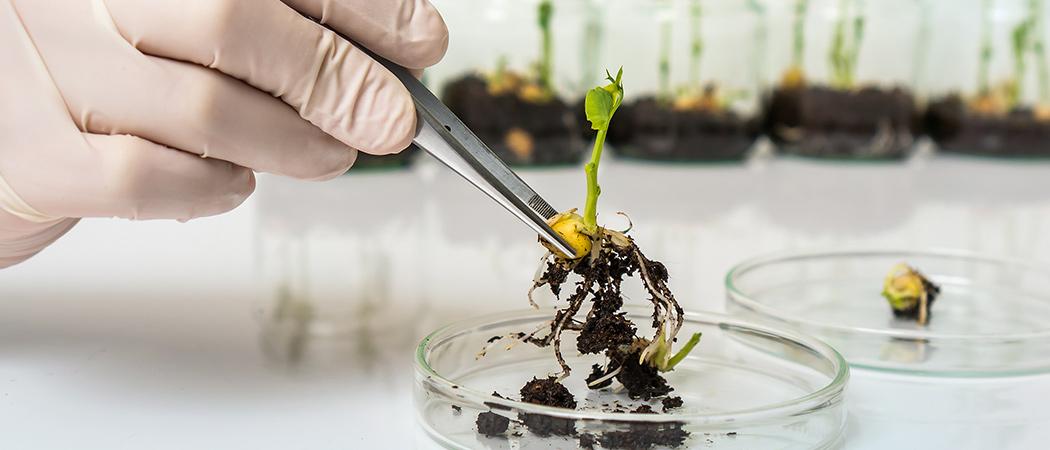Expert advisory council says liberalising research and cultivation of gene edited crops could create export barriers to the EU. But the risk is worth it, given the EU seems likely to soften its rules too

The UK is gearing up to diverge from the EU and make it easier to research and commercially cultivate genetically engineered crops and animals after a key advisory body said the EU’s current approach is “inhibiting useful innovation”.
Loosening current restrictions on altered organisms could mean British farmers face barriers selling genetically engineered produce to the EU.
But the UK Regulatory Horizons Council, an independent expert advisory body set up last year to scope regulatory change in fields ranging from fusion energy to artificial intelligence in healthcare, believes the risks are worth it, in part because there are signs Brussels may be softening its stance on genetically engineered products.
Earlier this month the council released a report enthusing that a new wave of gene editing techniques has the potential to create healthier, more disease resistant crops that need less pesticide and contribute less to climate change.
The report “has a sort of pro-innovation, pro-gene editing bias to it,” said David Rose, professor of agricultural innovation at Reading University. “It tells us that DEFRA [the Department for Environment, Food & Rural Affairs] is minded to try to change the regulations to allow gene editing as quickly as possible.”
Responding to the council’s report, business secretary Kwasi Kwarteng agreed there are “substantial opportunities for the UK from genetic technologies and it is by ensuring a proportionate regulatory approach that we can fully take advantage of these.”
“Our exit from the EU provides the perfect opportunity to achieve [benefits] for the products of genetic technologies,” he said.
The prospect of loosening rules around gene editing is seen by many UK scientists as one of the few silver linings to Brexit. EU rules have been rolled over in the UK, meaning the same restrictions apply as before, but in January DEFRA opened a consultation on changing the law.
At the heart of the debate is a distinction between first generation genetic technologies, which involve introducing marker genes from other organisms to show a particular transformation has taken place, and gene editing, such as through Crispr, which can make precise modifications to a plant or animal genome, without the need to introduce any foreign DNA.
Speeding up traditional breeding
This is seen by advocates of gene editing as being a more precise, faster and targeted way of carrying out traditional breeding, as has been practiced for thousands of years.
But as things stand, a controversial 2018 European Court of Justice ruling holds that gene edited organisms should be classified as genetically modified, and so be subject to strict limits on research and commercialisation.
In DEFRA’s view, organisms generated by gene editing “should not be regulated as GMOs if they could have been produced by traditional breeding methods.”
The report from the Regulatory Horizons Council says the UK should establish a new regulatory regime for gene editing that balances, “precaution about future hazards with ambition to gain future benefits”
Regulatory data requirements should be “proportionate to the nature and scale of potential risks” and data “that do not relate to a clearly specified policy” should not be collected.
Currently, running field trials of genetically engineered and modified crops in the UK is “possible” but “can be difficult,” said Nigel Halford, a crop scientist at Rothamsted Research. The application process is lengthy and expensive, with an application fee of £5,000.
Last month, Halford and colleagues won approval for what will be the first field trials of Crispr edited wheat in Europe or the UK. The wheat has been modified to produce lower levels of a particular amino acid that is known to be carcinogenic.
Applications for field trials go to the UK government, but requests for full commercial cultivation have to be approved at EU level, and are routinely rejected, Halford said. “Because that’s so difficult, you can’t get investment from companies to support the research.”
Only one GMO, a pest-resistant form of maize approved in 1998, is grown in the EU. The EU does allow imports of GM crops, but these are largely for animal feed, such as soybeans, and only a small amount is for human consumption.
The risk is that if the UK allowed widespread cultivation of gene edited crops, British farmers could lose access to EU markets.
“If we deregulate such that we allowed gene editing and the EU didn’t, that would be problematic for exporting,” said Rose.
But according to the report, this is a risk worth taking. “There may be negative impacts on trade with the EU,” the report warns. “However, trading opportunities with most of the rest of the world beyond the EU will be opened up and, given the current lack of EU trade in products of genetic technologies, the balance for the UK is likely to be positive.”
The council also predicts that the EU may start to loosen its rules, saying, “There are also increasing pressures for regulatory change within the EU that could result in their future alignment with most other countries.”
It points to a Commission report released in April that concluded current legislation “is not fit for purpose” for certain gene editing techniques, and that it “needs to be adapted to scientific and technological progress.”
“As net importers of food, the UK and EU will probably (most likely definitely) have to deal with a world where genetic engineering becomes the norm with respect to the food supply chain,” said Murray Grant, a food security researcher at Warwick University.





 A unique international forum for public research organisations and companies to connect their external engagement with strategic interests around their R&D system.
A unique international forum for public research organisations and companies to connect their external engagement with strategic interests around their R&D system.